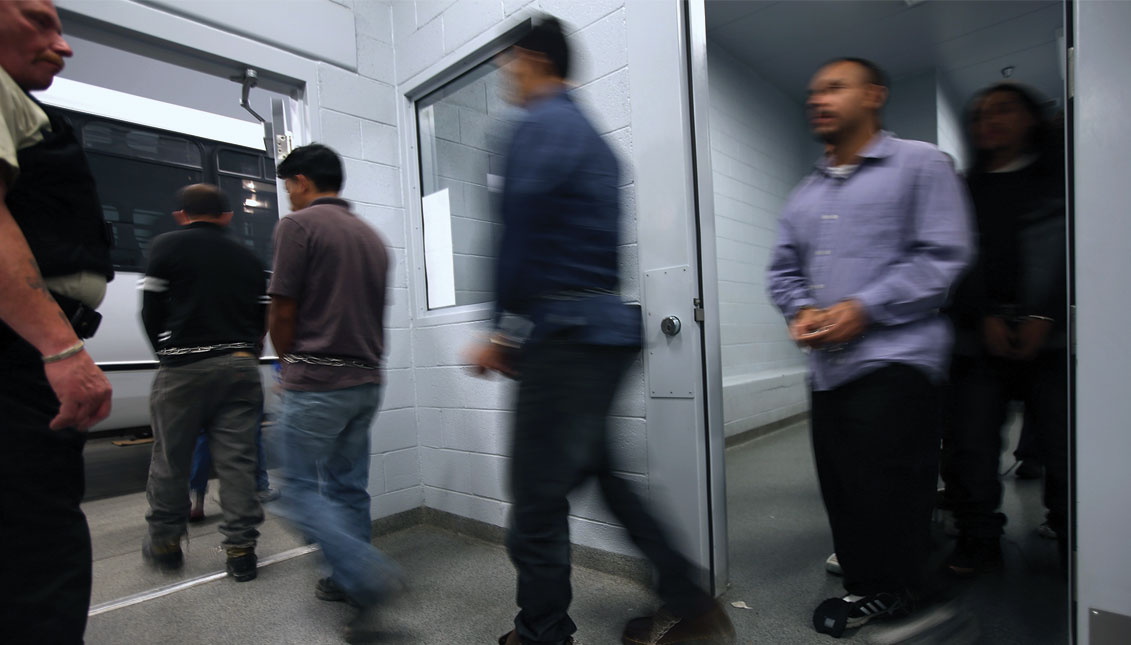
Another kind of Confinement: The Risk to Immigrants Detained by ICE during the Coronavirus Pandemic
Following the announcement of four positive cases for COVID-19 in detention centers across the country, politicians and activists are demanding ICE's release…
At the time this story was written, the Washington Post reported "more people have died in the U.S. from the coronavirus than in the 9/11 attacks”
Between late responses by the Donald Trump administration to take containment and prevention measures, the spread of the Coronavirus in the country puts millions of lives at risk, regardless of race, gender or immigration status.
But when it comes to an immigration detention center in the United States, the risk is even more imminent.
For years, immigrant rights organizations, activists, and politicians alike have warned of the critical health and humane conditions to which people detained by the Immigration and Customs Enforcement (ICE) agency are subjected in the country.
How are these centers supposed to deal with a pandemic that cannot be contained even on the streets?
With nearly 181,000 confirmed cases and 3,580, the United States is now the epicenter of the world's Coronavirus crisis, and since ICE announced the first confirmed case of a person in a detention center, calls for the release of detainees have only escalated.
“This is what public health experts have assured us would happen: People in detention centers are sitting ducks for the spread of this virus," Andrea Flores, deputy director of policy at the ACLU, said in a statement. "The same experts have also predicted that once outbreaks in detention centers begin, they will spread rapidly."
Especially in a detainee population of 38,000 in more than 130 prisons and detention centers across the country.
Since the outbreak of the epidemic in the country became known, both the ACLU and other organizations have sent letters and introduced lawsuits to demand "strategies" from the government and federal agencies to prevent and mitigate the crisis within their facilities.
"People in detention are very vulnerable to outbreaks of contagious illnesses," they wrote. "They are housed in close quarters and are often in poor health. Without the active engagement of the detention center's administration, they have little ability to inform themselves about preventive measures, or to take such measures if they do manage to learn of them.”
ICE officials responded to the organizations' concerns by assuring that the agency has the support of the Health Services Corps and isolation facilities, according to the Washington Post, adding that they "have received guidelines on the use of protective equipment.”
RELATED CONTENT
However, with the rapid escalation of the crisis, activists and organizations have reinforced their calls, this time for the release of detainees at risk.
Despite the refusal of another district judge in Washington, Judge James E. Boasberg decided to press the agency on Monday, and although he did not go so far as to order the immediate release of some 1,350 migrant family members held in three centers in Pennsylvania and Texas, he did order immigration authorities "to report on their efforts to release families in custody by next week," the Post reported.
“I will order that in a week [April 6], the government has got to come back to me and give me answers about the capacity of these centers, videotapes of living conditions and steps taken toward release,” Boasberg said after a 45-minute hearing.
“Circumstances are changing rapidly, and if there are cases in these centers or there are other problems that are not compliant, I will revisit” the petitioners' emergency release request, the judge added.
Similarly, on Saturday, Los Angeles District Judge Dolly M. Gee issued an emergency order requiring federal agencies that operate detention facilities for migrant children to "report their efforts to release children in custody by April 6," and then proceeded to extend the order to cover their parents.
In Pennsylvania, District Judge John E. Jones III similarly ordered ICE to release 13 at-risk immigrants.
“It would be heartless and inhumane not to recognize [the] petitioner’s plight,” the judge wrote in response to the ACLU's lawsuit. “Should we fail to [order their release] … we will be party to an unconscionable and possibly barbaric result.”











LEAVE A COMMENT: